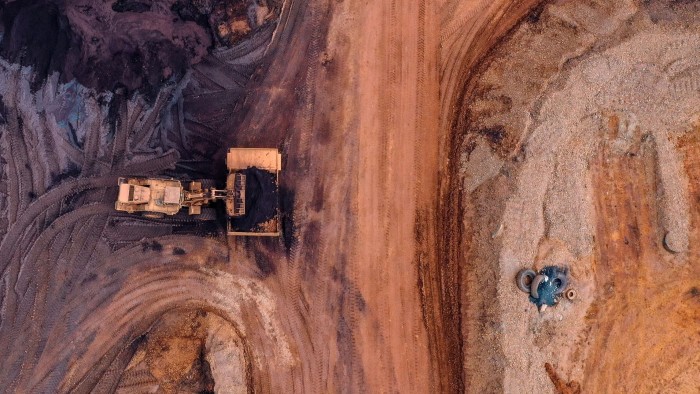Stay informed with free updates
Simply sign up to the Mining myFT Digest — delivered directly to your inbox.
Indonesia is considering potential cuts to nickel ore supplies to help boost prices amid a global glut, in a move that could put the brakes on rapid production growth in the world’s largest producer of a metal critical to steelmaking and EV batteries.
Nickel prices have dropped about 40 per cent over the past two years to around $16,000 per tonne because of an abundance of supply from Indonesia as demand growth slows for electric vehicles globally. The price slump has triggered substantial closures of nickel mines outside the south-east Asian nation, and has also squeezed margins of domestic producers.
Indonesia, which controls over half of global refined nickel production, is now studying a possible adjustment to mining quotas that would boost prices, its Ministry of Energy and Mineral Resources told the Financial Times.
“Nickel production should be in accordance with the needs of the domestic industry and the export market, ensuring that the volume produced does not cause a continuous decline in the price of the commodity and price of the commodity is more stable in the global market,” said Tri Winarno, director-general of mineral and coal at the ministry.
He declined to provide numbers, though media reports have said the quota for this year could be set at 150mn to 200mn tonnes. Indonesia approved quotas of around 270mn tonnes last year, according to estimates from Macquarie, which called nickel the “most unloved base metal”.
“If ore quotas were to drop then we would likely see a slowdown in growth of refined nickel output and therefore a potential reduction in the global market surplus,” said Harry Fisher, product director of cobalt and nickel at Benchmark Mineral Intelligence (BMI).
However, Indonesia needed to be careful about cutting aggressively, due to tax revenue implications. “The nickel industry has been hugely beneficial for the economy. So they’ve got to balance that,” he said.
Indonesia banned the export of nickel ore in 2020 to force foreign companies to set up refineries and battery manufacturing in the country, and to earn more from higher-value exports. That prompted billions of dollars in foreign investment — mainly from Chinese companies — to set up operations.
Since then, Indonesia’s dominance of the nickel market has grown. According to BMI, Indonesia produced 2.02mn tonnes of refined nickel last year, or 57 per cent of global production. This year, BMI expects Indonesia’s output to increase to 2.38mn tonnes, or 62 per cent of the global share.
Through mining permits, Indonesia has already been controlling production enough to create a shortage of ore supply last year, with processing facilities importing more than 10mn tonnes of ore from the Philippines. Analysts say any reduction in mining quotas this year would mean domestic ore production would be insufficient to meet the smelting capacity that is expected to come online in Indonesia. This would trigger an increase in domestic ore prices and cause refineries to import more.
Analysts also said the Indonesian government would be trying to strike a delicate balance in acting to lift prices and keep domestic producers happy, without pushing up prices so high that it made economic sense for new nickel mines to open elsewhere in the world.
Macquarie estimates the global nickel market was oversupplied by 200,000 tonnes last year. It expects a smaller surplus of 60,000 tonnes this year, due to anticipated cuts in Indonesia and a recovery in EV battery demand.
Macquarie analyst Jim Lennon said Indonesia would be the key variable in determining the global market balance in 2025 and beyond.
A sharp cut to quotas is “highly unlikely”, he said, adding: “There’s not enough capacity elsewhere in the world to suddenly turn on to replace that.” Reducing the quota to 150mn tonnes would remove 35 per cent from global nickel supply, he said.
https://www.ft.com/content/8e0de8a7-7a83-40d0-ac80-b508e233d589



